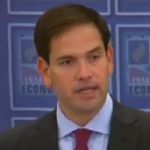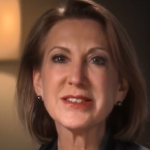Sen. Marco Rubio described a hypothetical Detroit business owner with 10 employees as facing higher costs under the Affordable Care Act, saying the man was considering moving one employee to part time to “save … a significant amount under Obamacare.”
Stories by Lori Robertson
Director, FactCheck.org









